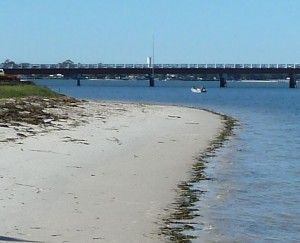
Geologist Carl Froede reported, in Journal of Creation 23(3), experiments on bioturbation that illustrate how quickly the depositional structure of sediments can be destroyed. In that report he said:
Recent laboratory experiments document that the bioturbation of marine sediments can occur over a short period of time depending on the type and population density of trace makers. For uniformitarians, the lack of any stirred sediment requires that they appeal to punctuated catastrophic events. Such events do not eliminate their reliance on deep time assumptions—the vertical rock record should exhibit layers of intense bioturbation interrupted by nonbioturbated sedimentary events followed by intense bioturbation. However, this is not typically found in the actual rock record.
In other words, those who believe the sediments revealed in the ancient rocks were deposited over millions of years have a time problem becasue the lack of bioturbation testifies to rapid burial.
Nicola
Errrr…. what lack? I’ve seen plenty of bioturbated rocks. Please clarify where you think they should have been.
Tas Walker responds:
Carl Froede’s report referenced above shows that bioturbation quickly destroys the depositional structure of sediments. Yes, bioturbation features are occasionally found in rocks but always the depositional structure is still well preserved. This is evidence against long periods of time.